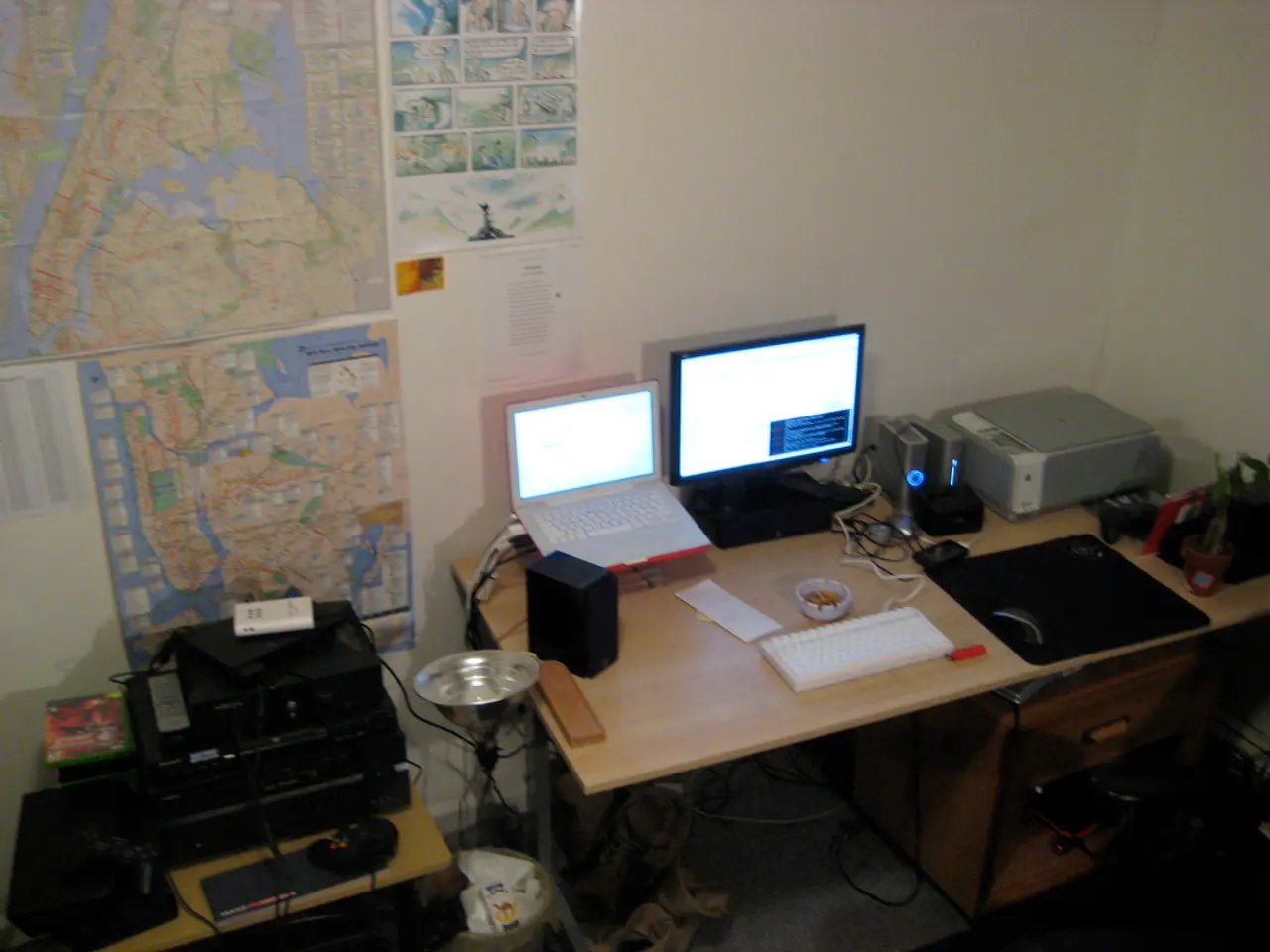Revival of US AI Chip Industry Kickstarted by Tesla-Samsung Partnership
Tesla's significant order of AI-accelerator chips from Samsung is reshaping the global semiconductor industry. This deal, worth $16.5 billion, is set to intensify demand for advanced AI chips, accelerate Samsung's expansion in Texas, and reinforce U.S. efforts towards tech independence.
The chips, designed using Samsung’s 4-nanometer process, will power Tesla’s Full Self-Driving (FSD) systems and AI infrastructure, reflecting the rising compute needs of autonomous vehicles and AI applications. This substantial, multi-year commitment signals robust growth in AI-specific semiconductor demand, particularly in the automotive and data center AI markets.
Samsung's response to this opportunity is the construction of a 6 million sq ft fabrication plant in Taylor, Texas, scheduled to open in early 2026. This Texas fab is a major investment in American semiconductor production, marking one of Samsung’s largest U.S. manufacturing commitments. It demonstrates Samsung’s strategic push to increase its footprint in high-performance chip manufacturing domestically, attracting high-profile customers like Tesla and addressing previous challenges in U.S. market penetration.
By situating advanced chip production in Texas, the deal supports U.S. initiatives to reduce reliance on overseas semiconductor supply chains amid geopolitical tensions. Samsung’s presence in a U.S. fab producing chips for a leading American tech manufacturer like Tesla aligns with broader efforts to secure domestic semiconductor capabilities vital to national technology and economic security.
The Texas plant, once operational, is expected to create 8,868 direct and 9,768 indirect jobs, with 1,800 high-skill roles. Tesla delivered 1.789 million electric vehicles in 2024, each equipped with two Full Self-Driving chips, totaling over 3.5 million chips. The volume of production could potentially exceed the initial $16.5 billion value, indicating deepening collaboration and greater semiconductor supply integration moving forward.
Anirudh Agarwal, CEO of OutreachX, stated that Tesla and Samsung's move to anchor AI chip production in the U.S. could catalyse a new era of American tech independence. This partnership highlights the semiconductor sector’s critical role in automotive innovation and AI development, sectors predicted to drive substantial future chip demand.
Tesla's deal with Samsung is also in line with the Biden administration's CHIPS and Science Act, which allocates $39 billion to boost domestic semiconductor manufacturing and $13 billion to R&D and workforce development. The Texas plant is expected to receive up to $4.7 billion in CHIPS Act incentives.
In 2024, Asia-Pacific fabs held a 68% share of contract-foundry revenue. However, Tesla's strategic reliance on a U.S.-based foundry for next-gen AI chips and FSD hardware underscores a shift in this trend. The projected market size of AI chips is $311.58 billion by 2028, offering promising prospects for the U.S. semiconductor industry.
In conclusion, Tesla's massive chip order is a catalyst for semiconductor industry shifts, supporting Samsung’s growth in America and reinforcing supply chain sovereignty for cutting-edge AI and automotive technologies.
- The significant order of AI-accelerator chips from Samsung by Tesla could signal a new era in business and investing, particularly in the real-estate sector, as Samsung plans to construct a 6 million sq ft fabrication plant in Texas.
- The advancing integration of technology, such as artificial intelligence and data-and-cloud-computing, in the automotive industry is highlighted by Tesla's commitment to using these chips in their Full Self-Driving systems, potentially driving substantial future chip demand.
- The collaboration between Tesla and Samsung represents a strategic push towards American technology independence and economic security, aligning with the priorities outlined in the Biden administration's CHIPS and Science Act.




